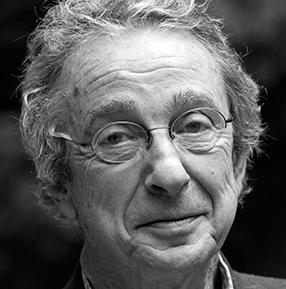by Jackie Ott
On October 6, the University Book Store will be flooded with the wisdom of Robert Lax and the beauty of Michael McGregor’s words. McGregor’s reading is sponsored by our very own English department and the Garaventa Center, and he will read from his new book Pure Act: The Uncommon Life of Robert Lax, a biography about the inspirational, spiritual poet who influenced many, including McGregor himself. I had a chance to interview McGregor about his passion for the work of Lax and his own career as a writer. Here’s what he had to say:
For someone who may not have heard of Robert Lax, what would you say is the draw of Lax as a poet? What made you want to write a book on his life?
Lax was an incredibly inventive poet whose work makes you more aware of life’s moments and their transcendent possibilities. My fascination with him goes far beyond his poetry, however. When Lax was young, he had a deep influence on the spiritual development of his close friend Thomas Merton. When he was older—after working for the New Yorker, reviewing films for Time, writing scripts in Hollywood and even traveling with a circus—he settled among poor fishermen and sponge divers in Greece because he wanted to learn their wisdom.
I wrote about him because I knew him for 15 years and he was the most remarkable and loving man I ever met.
What is your writing process?
When writing nonfiction, I like to gather as much information as I can and then live with it for a while before starting to write, to know it as intimately as possible, to digest it fully, so the writing feels as if it’s coming from a place of true understanding. I like to write in the morning, before the day’s events crowd my thoughts. I’m a slow, multi-draft writer. I read things over many times, often out loud to hear the rhythms of the words and sentences.
What kind of research did you do in the writing of your new book?
I did extensive research over many years for this book. I spent hours upon hours in Lax’s archives at Columbia University and St. Bonaventure University, reading through journals and letters, watching films, going through pictures, and even checking postmarks on cancelled stamps to see where he was on what date. In addition, I interviewed his family and friends, visited the many places he lived (Marseilles, the French Alps, the Greek islands of Kalymnos and Patmos, etc.), and read countless books on the times in which he lived, the subjects that influenced him (poetry, jazz, meditative writers), and his friends (Merton, Jack Kerouac, William Maxwell, Ad Reinhardt, Mark Van Doren and more).
What works of literature have been formative for you as a writer? What are you reading right now?
Instead of individual works, let me give you authors. There are too many to count, but here are a few: Tolstoy taught me how to evoke a feeling of lived life, Hemingway taught me how to be clear and give flow to my sentences, Kundera taught me how to write ideas into stories, Homer taught me how to write with action, Conrad taught me how to think about narration and multiple viewpoints rendered from a single perspective, A. J. A. Symons taught me how to turn a biography into a quest for identity, Baldwin taught me to prioritize humanity in everything I write, Borges taught me how to use repetition and invention, Hugo taught me how to reach for deeper emotions, the great Hebrew and early Christian writers taught me how to address spiritual matters in a variety of ways, Camus taught me how to focus on the beauty of existence, and Lax himself taught me how to write with economy and clarity. Of them all, Baldwin, especially in his nonfiction, has been my best teacher.
Right now I’m reading a book about the relationship between Baldwin’s prose and the various musical styles that have come out of the African American experience: blues, jazz, gospel, spirituals, etc.
Although Pure Act is your first book, you have an impressive number of works published in various styles from poetry to journalism. Out of all the types of writing you do, do you have a favorite and if so why?
I can’t say I favor one over another, but I love storytelling, working with ideas, and creating beauty with words. So fiction, I suppose…or maybe literary nonfiction…or possibly poetry….
Do you have any advice for aspiring writers?
Write as much as you can, every day, and don’t quit. Study those who’ve done it well. Slow down enough to really see life and hear language. Be thankful for each moment and always, in every moment, be fully human–alive, compassionate and filled with joy.






